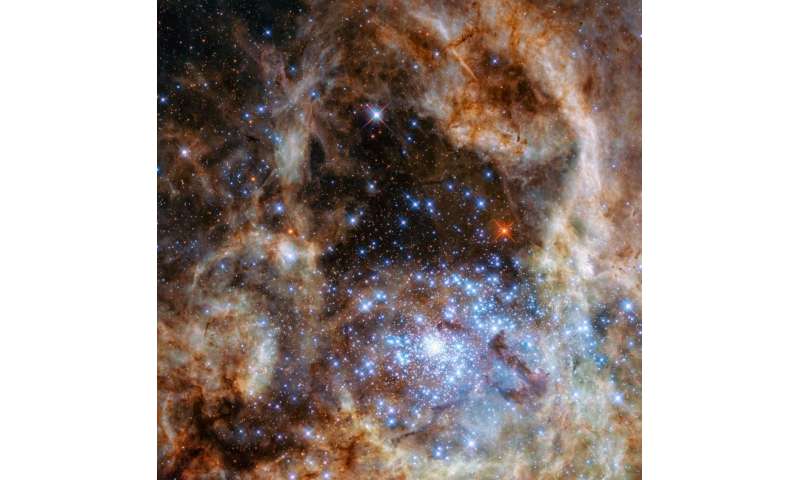Best of Last Week – Physics formula contradicted research, Hubble unveiled monster stars and opiod-free pain relief

(ScienceX)—It was another interesting week for physics as a team at the University of Cincinnati announced that they had developed a formula that contradicts decades of published research. They claim to have found that certain solutions with and without bosonization do not match, where theory says they should. A team at Pacific Northwest National Laboratory announced that they had found the temperature at which glass becomes a liquid and that the temperature at which glass-forming materials are deposited on a substrate affects stability.
It was a good week for space research, as well, as a joint Europe-Russia mission departed on a hunt for life on Mars—a rocket launched carrying the Trace Gas Orbiter to study the Martian atmosphere. An international team of researchers announced that Hubble had unveiled monster stars—nine of them with masses over 100 times that of our sun.
In other news, a team of researchers at UCLA announced that they had found a way to turn carbon dioxide into sustainable concrete. Their product, called CO2NCRETE, would capture carbon from smokestacks and use it as a replacement for regular concrete in many applications. A pair of researchers at Stanford University found that prime numbers aren't as random as thought. They discovered that primes ending in a particular digit are less likely to be followed by another prime ending in the same digit. In biology, a research team with members from several institutions in the U.S. found that the mysterious 'Tully monster' was a vertebrate—the 300 million-year-old lamprey-like creature had a long neck and an odd toothed extension between its eyes.
Also, a team with EMBL and University Pablo Olavide, announced that they had discovered a neural mechanism in mouse brains that indicates that we actively forget as we learn. And a team of researchers from Spain, Germany, the U.K. and Canada, found that 400,000-year-old fossils from Spain provided the earliest genetic evidence of Neanderthals, despite earlier mitochondrial DNA evidence that showed them distantly related to Denisovans.
And finally, if you are one of millions of people across the globe suffering from chronic pain, help may be on the way as a team of researchers with Wake Forest Baptist Medical Center conducted a study that found that mindfulness meditation provides opioid-free pain relief. The results of the study suggest the practice may help reduce pain without calling up naturally produce opioids, which makes it safer.
© 2016 ScienceX